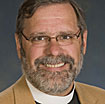Commentary on Psalm 34:15-22
1515The eyes of the LORD are upon the righteous, and God’s ears are open to their cry.
16The face of the LORD is against those who do evil, to erase the remembrance of them from the earth.
17The righteous cry, and the LORD hears them and delivers them from all their troubles.
18The LORD is near to the brokenhearted and saves those whose spirits are crushed.
19Many are the troubles of the righteous, but the LORD delivers them from every one.
20God will keep safe all their bones; not one of them shall be broken.
21Evil will bring death to the wicked and those who hate the righteous will be punished.
22O LORD, you redeem the life of your servants, and those who put their trust in you will not be punished.
The first lesson narrates the great covenant renewal showdown at Shechem where Joshua demands that the people “choose whom they will serve.” The psalmody responds to that great moment by extoling God’s compassion for the oppressed and declaring the divine saving power, deliverance, and redemption that have brought the covenant people to this time and place.
Verses 15 and 16 contain a parallelism with an antithesis. God stands ready to vindicate the righteous but will wipe evildoers not only from the earth but also from all memory. Embedded in the parallelism is a subtle and beautiful use of body metaphors. In verse 15, when speaking about God’s attitude toward the righteous, the psalmist evokes intimacy by speaking of God’s eyes and ears. In verse 16 it is God’s face — more abstract, formal, and distant — that is set against the evildoers.
Verses 17-20 focus on the righteous; the evil are not mentioned at all. But in a break with the general sentiment of the first 14 verses of the psalm (a portion of which we heard last Sunday), the psalmist here acknowledges that the righteous will have troubles — in fact, many troubles! No specific reason for those troubles is given; there is no implication here that the righteous are being persecuted for their faith or for their counter-cultural practices. It is possible that the psalmist is merely being realistic — echoing the tone of Ecclesiastes or presaging Jesus’ maxim that God rains on the just and unjust (Matthew 5:45). However, the emphatic many in verse 19 suggests some causal connection between righteousness and trouble.
Most of the promises in verses 17-19 are abstract and spiritual (nearness to the brokenhearted; deliverance from troubles; salvation from crushed spirits), but verse 20 offers an odd, evocative, and material promise: no broken bones. I, for one, would gladly wear a leg cast if it meant I would never again suffer a broken heart. Perhaps there is some circumstance from the historical context of the psalm’s composition that makes this promise meaningful (that is, beyond its usefulness as a proof text for John 19:36).
A final parallel couplet (verses 21-22) echoes the antithesis of verses 15-16 and brings the wicked back into play; though in verse 21 God’s agency is cloaked through the use of passive voice. The overall tone of the final couplet assumes that reward and punishment are related to the covenant (in contrast to the secular, universal “wisdom tone” mentioned above); the distinction between the living and the dead has to do with their relationship to God, especially as revealed in the phrase “those who put their trust in you …” The last line is key because it signals a change in focus from recompense based on disposition and action (the righteous, evil-doers) to a promise focused on covenant relationship (“you servants,” and “those who put their trust in you …”).
The categorical dualistic language of this portion of Psalm 34 is resonant with the assumption made by Joshua at Shechem and is typical of a prevalent witness of Scripture. It is simultaneously at odds with Wisdom literature and at least one trajectory of Pauline theology, especially as developed in theologies of the Reformation. The world cannot be so easily divided between the evil and the righteous, between those who choose God and those who don’t. But even with our commitment to simul iustis et peccator, a distressing number of Lutheran Christians drift into the lazy assumption that “the righteous” are believers and “evildoers” are not.
When I’m in worship on August 26 I’d appreciate some candid reflection on how to reconcile the various understandings of how troubles and blessings are related to evildoing, righteousness, and God’s election of and care for a covenant people. Is the universe designed to reward righteousness and punish evil per se regardless of whether the actors are in covenant relationship with God? Or does trouble befall evil and good alike? Does God give special protection to the trusting righteous from trouble or are they rather destined for “many troubles”?
Another aspect of this portion of Psalm 34 that might warrant treatment in a sermon is the comforting image of God’s “nearness to the brokenhearted.” The many stories of troubled souls who have not felt that nearness warn against a sermon that proclaims this as unconditional promise. But preaching in the form of testimony — personal or, better, communal testimony — to how trust leads (at times?) to “many troubles” and then to an experience of God’s nearness has the capacity to bring hope.

August 26, 2012